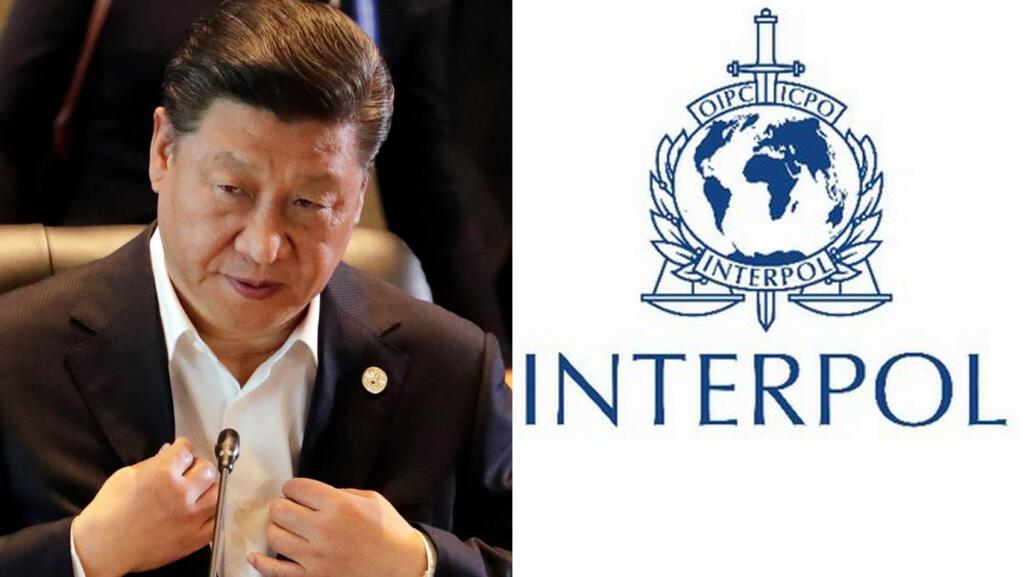Technological evolution around the world had led to new types of transnational organized crime appearing in China. People imagine that Interpol traces and arrests international criminals, gangsters, fugitives and white-collar criminals globally. But not many are aware that for around two years, China had misused this institution to harass and bring back high-profile political dissidents.
Interpol is radiotelegraph code for the International Criminal Police Organization which consists of 194 member countries who have supposedly agreed to “ensure and promote the widest possible assistance between all criminal police authorities in the prevention and suppression of ordinary law crimes”. As the economy strengthened in China, criminal authoritative actions by The Xi Jinping administration has parallelly increased. The Communist Supremo doesn’t tolerate democracy inside his territory, and through Interpol, it traces and crackdowns upon anyone who used democratic freedom against China anywhere in the world. China is expanding its influence in geo-politics by systematically moulding international institutions in a manner that suits their interests.
China’s Mass Genocide against Uyghurs
China has been accused of committing crimes against humanity and possibly genocide against the Uyghur population in the north-western region of Xinjiang. The concentration camps for Uyghurs in the communist state had compelled The United States, the European Union (EU), Britain and Canada to impose sanctions on Chinese officials for human rights abuses in Xinjiang. Western countries are trying to hold Beijing accountable for the mass detentions of Muslim Uyghur’s in northwest China. As per Human rights groups, China has detained more than one million Uyghur’s against their will over the past few years in a large network of what the state calls “re-education camps”, and sentenced hundreds of thousands to prison terms. As these actions came to light, Beijing retaliated immediately with punitive measures against the EU that appeared to be wider in scope, targeting European legislators, diplomats, institutes, and relatives, as well as, prohibiting their companies from doing business with China.
Uyghur Activist Arrested in Morocco
Previously in July this year, Moroccan authorities arrested a Uyghur activist in exile based on a Chinese terrorism warrant imposed by Interpol, according to the information from Moroccan police and Safeguard Defenders, a rights group that tracks people detained by China. He was supposedly the subject of a red notice issued by Interpol due to his suspected belonging to an organization on the lists of terrorist organizations,” the directorate said.
The red notice which is equivalent to being put on Interpol’s most-wanted list – was issued at the request of China, the directorate said. Activists fear Yidiresi Aishan will be extradited to China, and he claimed the arrest to be politically driven and part of a broader Chinese campaign to hunt down perceived dissidents exercising their freedom of expression outside China’s border.
The Red Notice System
China has long been accused of abusing Interpol’s Red Notice System (RNS). The RNS is an absolute power of the Chinese administration; a member country of the international police consortium can ask other countries to arrest and return fugitives living abroad. It’s not clear how often, if ever, this tactic has resulted in the U.S. turning over detainees to Chinese authorities. The RNS constitutes an important part of China’s deportation strategy. It freezes all international bank accounts and increases travel restrictions for designated individuals. China in 2015 issued 100 Red Notices against so-called economic fugitives through Operation Sky net, of which 51 have already been repatriated. Interestingly, succumbing to immense pressure and sustained Chinese threats, 35 of the 51 identified ‘criminals’ “voluntarily” returned to China.
The arrest of Meng, former president of Interpol, demonstrates that China views its own version of justice as superseding the integrity of an international organization. Another controversy was the arrest of Guo Wengui, a Chinese billionaire who fled China in 2014 and later gave interviews to the US media exposing the secrets of the Chinese Communist Party regarding their hidden wealth and corruption. He was issued an RNS extradition notice on grounds of corruption, bribery, and rape. The most prominent influence of China on Interpol is that it still continues to isolate Taiwan from the membership of the organization. The exclusion of Taiwan means the world is missing a critical link which China is trying to hide.
Undoubtedly, Communist China exerts a large influence on Interpol. The election of the Chinese vice minister of public security, Meng Hongwei, as president of Interpol in 2016 had already hinted that China was a leading influence in this body. China has repeatedly, wrongfully used Interpol for its benefit and political motives. Rather than applying this system objectively to nab criminals and members of international gangs, China has selectively used this service to harass Chinese nationals wanted by the communist authorities for engaging in political and religious activism or expressing views contrary to that professed by the Chinese Communist Party. Interpol no longer upholds the values of fairness, transparency and accountability of the international community and the Chinese authority serves as a barrier to the same.
